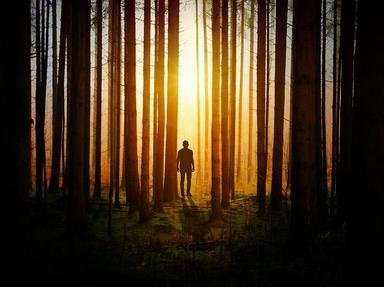Quiz Answer Key and Fun Facts
1. Jude Fawley, hero of Thomas Hardy's last novel 'Jude the Obscure', dreams of becoming a scholar at Christminster University but is instead forced to earn a living by what trade?
2. In J.R.R. Tolkien's 'The Lord of the Rings' trilogy, the hobbit Samwise 'Sam' Gamgee rises from a relatively lowly job in The Shire to become one of the nine members of the 'Fellowship of the Ring', Frodo's companion on his journey to Mordor, and 'Ring-bearer' of the One Ring. What was the trade that Sam started out in?
3. Johanna Spyri's 'Heidi' tells the story of a young orphan girl's life with her grandfather on the slopes of the Swiss mountains. Her best friend is a young boy named Peter who lives in a nearby cottage with his mother and blind grandmother. What is Peter's trade?
4. In a novel by George Orwell first published in 1945, the characters Old Major, Snowball and Napoleon are the leaders of a rebellion against the drunken and incompetent Mr Jones. What trade was Mr Jones unceremoniously ousted from?
5. The fame of Charles Dickens's 'A Christmas Carol' means that the name Ebenezer Scrooge is now synonymous with meanness and miserly behaviour. Scrooge made a great deal of money from which trade?
6. Atticus Finch is the hero of Harper Lee's award winning novel 'To Kill a Mockingbird' that tells the story of racial inequality in 1930s Alabama. What was Atticus's profession?
7. The eponymous Matilda, from a children's novel by Roald Dahl, is a precocious young girl who is distinctly under-appreciated by her unpleasant parents. While Matilda uses her intelligence to help her beloved schoolteacher Miss Honey, her father puts all his efforts into a criminally dishonest career in what trade?
8. George Eliot's Adam Bede, a respected working-class man, falls in love with the beautiful milkmaid Hetty Sorrel. However, she longs for a life of luxury and soon falls in love with a rich army officer. What was Bede's trade?
9. You could be forgiven for thinking that Robert Langdon, the hero of novels including 'The Da Vinci Code', 'Angels and Demons' and 'Inferno', was pursuing a career as an FBI agent or member of the intelligence services given the scale and scope of the life-threatening international events he kept ending up in. However, unlikely as it may seem, he was actually in what profession?
10. In Jane Austen's 'Pride and Prejudice', the sycophantic and obsequious Mr Collins is extremely proud of his profession and the position it gives him in society. In which career is he being assisted by his patroness, Lady Catherine de Bourgh?
Source: Author
Fifiona81
This quiz was reviewed by FunTrivia editor
looney_tunes before going online.
Any errors found in FunTrivia content are routinely corrected through our feedback system.


